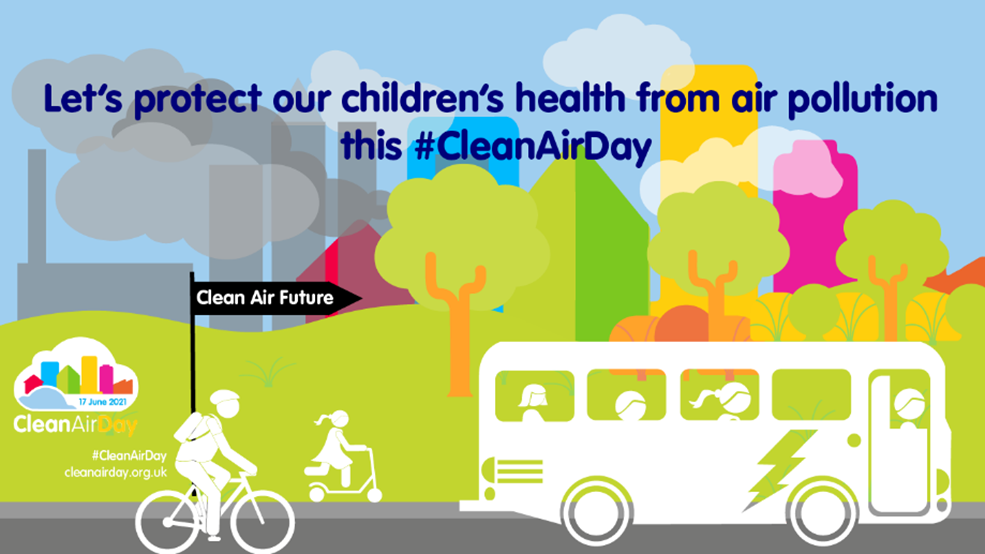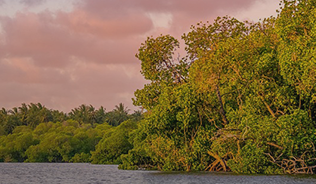Children are most vulnerable to the impacts of air pollution
Earlier this year a landmark decision was made when a nine-year-old girl become the first person in the UK to have air pollution listed as a cause of death. Ella Kissi-Debrah “died of asthma contributed to by exposure to excessive air pollution”. She lived near the South Circular Road in south-east London, where vehicles are the main sources of outdoor air pollution. Ella was more vulnerable to the impacts of air pollution because children are closer to the ground near vehicle exhausts and breathe more rapidly than adults, meaning they inhale more pollutants. Children’s airways are also smaller and still developing. The World Health Organisation states that exposure to air pollution in developing children impacts neurodevelopment and cognitive ability. It can also trigger asthma, childhood cancer, and lead to cardiovascular disease later in life.
When I was nine, after years of chest infections and rounds of antibiotics, I was admitted to hospital and diagnosed with the genetic condition Cystic Fibrosis. This disease can have a wide range of symptoms, but for me it predominantly affects my lungs. I’ve had several lung infections and declining lung function, but with hard work and good doctors my health has remained stable. Looking back, I appreciate how fortunate I was to live in a suburban area with generally good air quality which didn’t cause too many exacerbations. This motivates me as an Air Quality Consultant at Arup to produce meaningful solutions to ensure everyone has equal access to clean air. I’m lucky that I can raise awareness of the issues every day through communication with wider project teams and help schools inform pupils by being a STEM ambassador.
Committed to making a meaningful change
National Clean Air Day will be held on the 17th June 2021, with a focus on protecting children’s health from air pollution. Our air quality team have been involved with Clean Air Day since it launched, hosting events and working on projects to improve air quality in partnership with Global Action Plan (GAP) and independently. Using the Clean Air for Schools Framework we have recently supported five schools in Lambeth to identify and implement effective interventions to address air pollution, all in partnership with GAP, University of Surrey, and Guys and St Thomas Hospital Trust.

Image from GAP resources
We regularly carry out detailed air quality assessments to understand the impact from nearby roads on sensitive receptors, such as schools. Our work for the consented Oasis Academy in Silvertown, London involved working with a multidisciplinary team to successfully assess and influence the design and mitigation options for the site. Efforts were focused on limiting the source of emissions. To improve air quality, it is important to reduce the number of vehicles on roads and encourage uptake of cleaner vehicles such as hybrid and electric vehicles. Infrastructure such as electric vehicle charging, safe cycle lanes and secure cycle storage should continue to be supported by national and local governments, and the use of public transport should be encouraged. Near schools and nurseries, initiatives such as a walking buses and anti-idling campaigns can be implemented. The use of pedestrianised streets near schools can be trialled and implemented where possible.
At Arup we are committing to the UN Sustainable Development Goals (SDGs) in all of our projects from the outset, creating shared value for our clients and our communities while safeguarding our planet. The SDGs relevant to air pollution are SDG 3 (good health and wellbeing) and SDG 11 (sustainable cities and communities). We are collaborating with the Bernard van Leer Foundation to support the design and implementation of child- and family-friendly interventions in vulnerable urban environments, including reducing young children’s exposure to air pollution.
How to get involved
Arup are encouraging everyone to make a pledge for the coming year to improve air quality and share it on social media using #CleanAirDay. Make sure you include #ArupAirQuality in your post so we can see it!
To learn more about how children are impacted by air pollution and what you can do, watch our short Arup Adventures - Air Quality (part of the Arup Adventures series), or take a look at our publications to learn how we aim to shape better, healthier, safer environments: Future of Schools, Cities Alive: Designing for Urban Childhoods and 10 Priorities for Health and Wellbeing.
Erica Powell is an Air Quality Specialist at Arup who also acts as a digital enabler within the wider London Environmental Team. She enjoys using her digital skills to compile emissions inventories for maritime and aviation clients to help identify effective solutions for reducing air pollution.





